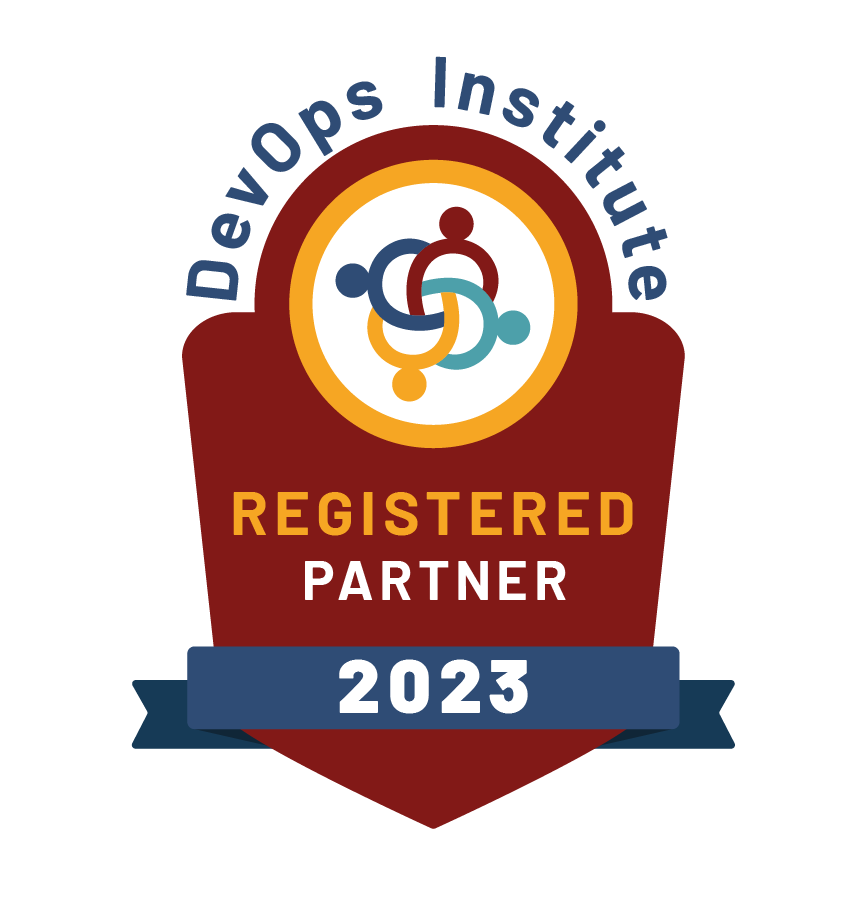 Certificate
Certificate
Course Outline
Course Introduction
- Course goals
- Course agenda
CDEF Concepts
- Continuous delivery (CD) definition
- Architecting for continuous delivery
- Continuous delivery and DevOps
- Relationships between CD, Waterfall, Agile, ITIL, and DevOps
- Benefits of continuous delivery
CDEF Culture
- Importance of culture to the CD Architect
- What a CD Architect can do about culture
- How to maintain culture
- Assignment: DevOps culture and practices to create flow
Design Practices for Continuous Delivery
- Why design is important to continuous delivery
- CD Architect’s role in design
- Key design principles
- CD best practices
- Microservices and containers
Continuous Integration
- Continuous integration (CI) defined
- CD Architect’s role in CI
- Importance of CI
- Benefits of CI
- CI best practices
- Assignment: Optimizing CI workflows
Continuous Testing
- Continuous testing (CT) defined
- Importance of CT
- Benefits of CT
- CD Architect’s role in CT
- Five tenets of CT
- CT best practices
- Assignment: Handling environment inconsistencies
Continuous Delivery and Deployment
- Continuous delivery defined
- Continuous deployment defined
- Benefits of continuous delivery and deployment
- CD Architect’s role in continuous delivery and deployment
- Continuous delivery and deployment best practices
- Assignment: Distinguishing continuous delivery and deployment
Continuous Monitoring
- Continuous monitoring defined
- Importance of continuous monitoring
- CD Architect’s role in continuous monitoring
- Continuous monitoring best practices
- Assignment: Monitoring build progress
Infrastructure and Tools
- Importance of infrastructure and tools
- CD Architect’s role in infrastructure and tools
- Building a DevOps toolchain
- Infrastructure/tools best practices
- Assignment: identifying common infrastructure/tool components
Security Assurance
- Importance of security assurance
- DevSecOps and Rugged DevOps defined
- CD Architect’s role in security
- Security best practices
- Assignment: Applying security practices
Capstone exercise
- Identifying toolchain and workflow improvements
Summary
Additional Sources of Information
Exam Preparations
- Exam requirements
- Sample exam review
Requirements
PREREQUISITES
An understanding and knowledge of common DevOps terminology and concepts and related work experience are recommended.
AUDIENCE
The target audience for the Continuous Delivery Ecosystem Foundation course is anyone interested in learning about the principles of Continuous Integration and Continuous Delivery, such as:
- Build Engineers
- Enterprise Architects
- IT Managers
- Maintenance and Support Staff
- Operational and Infrastructure Teams
- Project Managers
- QA Managers
- Release Managers and Engineers
- Software Developers
- Security Professionals
- Testers
Delivery Options
Private Group Training
Our identity is rooted in delivering exactly what our clients need.
- Pre-course call with your trainer
- Customisation of the learning experience to achieve your goals -
- Bespoke outlines
- Practical hands-on exercises containing data / scenarios recognisable to the learners
- Training scheduled on a date of your choice
- Delivered online, onsite/classroom or hybrid by experts sharing real world experience
Private Group Prices RRP from €4560 online delivery, based on a group of 2 delegates, €1440 per additional delegate (excludes any certification / exam costs). We recommend a maximum group size of 12 for most learning events.
Contact us for an exact quote and to hear our latest promotions
Public Training
Please see our public courses
Testimonials (3)
The break down of what DevOps can do. Possible Automation Integration.
Adeyinka Adekoya - NTPF
Course - Continuous Testing Foundation (CTF)®
working with DevOps Toolchain
Kesh - Vodacom
Course - DevOps Foundation®
I like the interactive approach taken by the trainer.



